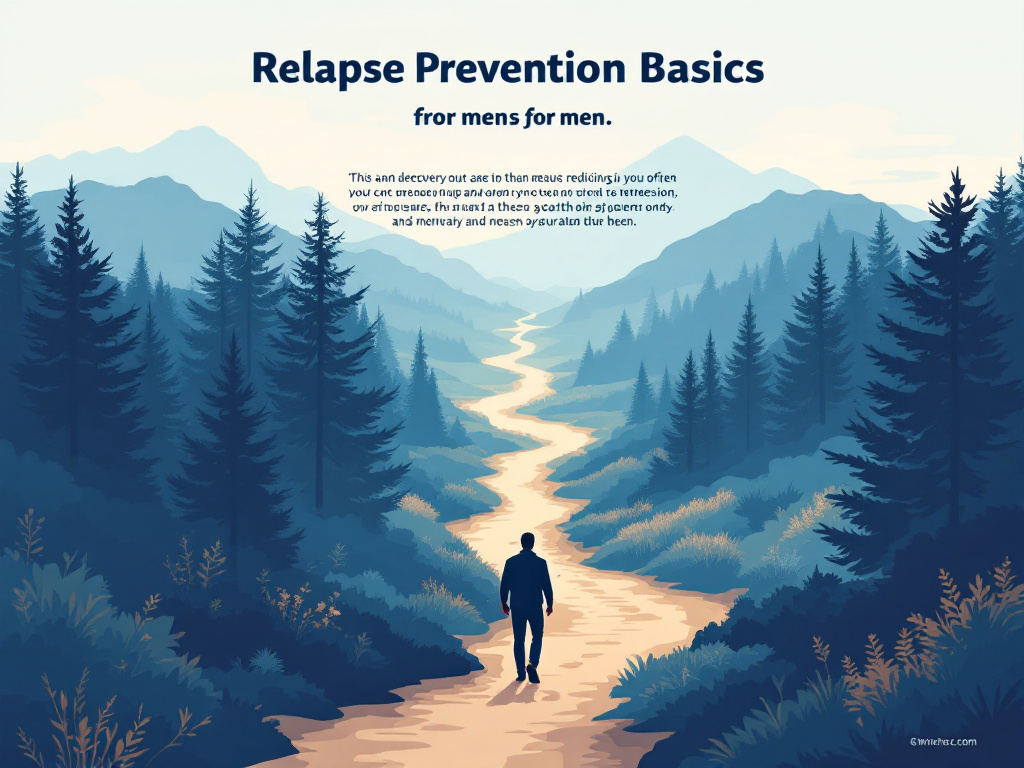The Importance of Medical Detox
Understanding Medical Detox
We recognize that medical detox is a critical first step in breaking free from addiction. This process involves ridding the body of toxic, addictive substances under the supervision of a professional medical team, which typically includes a physician, nurses, and therapists. Medical detox provides essential care to manage withdrawal symptoms safely and begins the recovery journey in specialized facilities such as acute detox centers and alcohol or drug detox centers. For individuals showing physical and psychological signs of substance dependence, this first step is vital for effective recovery (The Recovery Village).
The detox process safely eliminates substances from the body while managing withdrawal symptoms such as nausea, sweating, anxiety, and tremors. In severe cases, withdrawal can lead to life-threatening complications, including seizures, which necessitate immediate and skilled medical attention (Evoke Wellness Ohio).
Benefits of Professional Supervision
Choosing professional supervision during the detox process offers numerous benefits. It ensures that individuals withdrawing from substances are monitored continuously by healthcare professionals. This oversight is crucial in identifying and addressing potential complications promptly.
| Benefit | Description |
|---|---|
| 24/7 Monitoring | Continuous medical supervision helps manage withdrawal symptoms effectively. Signs of complications can be addressed immediately, reducing risks associated with detox. |
| Customized Care | Medications are administered on a patient-by-patient basis to alleviate withdrawal symptoms and reduce cravings while considering the individual’s unique needs (The Recovery Village). |
| Safety and Support | A licensed medical professional team ensures safe detoxification, providing emotional and psychological support throughout the process. |
By opting for medical detox in a professional facility, we can help individuals transition smoothly into further treatment and recovery, where continued care and support can be offered. Understanding the significance of this initial phase can motivate those struggling with substance dependence to seek help and choose a path of recovery. For more insights into the detox experience, be sure to check our resource on why medical detox is essential before starting rehab.
What to Expect During Medical Detox
At Recovery Bay Center, we understand that embarking on a medical detox journey can be both challenging and transformative. We’re committed to providing clarity on what to expect during this vital process.
24/7 Medical Supervision
During a medical detox at our facility, patients receive 24/7 supervision from licensed doctors and nurses. This continuous care ensures prompt treatment in case of emergencies or severe withdrawal symptoms. According to Evoke Wellness Ohio, medical detox is not only safe and effective but also essential for eliminating substances from the body while managing potentially severe withdrawal symptoms. Our physician-led medical team, along with experienced nurses and clinical staff trained in addiction treatment, is dedicated to providing high-quality care throughout the detox journey. For further insights, explore how managing withdrawal safely with 24/7 medical supervision is crucial for a successful detox experience.
Individualized Detox Timelines
The timeline for medical detox is not one-size-fits-all. Each patient’s timeline varies, influenced by factors such as the substance being detoxed, the severity of addiction, physical health, and individual genetics. This personalized approach is vital to ensuring that each individual receives the appropriate level of care needed during detoxification. It is important to understand that there is no established timeframe for completing the detox process. More information can be found in our article on detoxing from opioids vs. alcohol: differences in care and support.
Transition to Treatment Post-Detox
After the detox phase, patients are typically transitioned to addiction recovery treatment, where they continue to receive support from licensed professionals. Our facility focuses on not just the physical aspects of recovery but also addresses underlying mental health factors that may contribute to addiction. This approach ensures a holistic pathway to recovery. For insight into how detox sets the foundation for long-term sobriety, visit our article on how detox sets the foundation for long-term sobriety.
Role of Medication in Recovery
Medication can play a crucial role in aiding recovery from addiction. For instance, Suboxone may be prescribed post-detox to reduce cravings and facilitate a smoother transition to sobriety. Other medications, such as methadone, naltrexone, and buprenorphine, are commonly utilized during medical detox to alleviate withdrawal symptoms and cravings under professional supervision (The Recovery Village). Understanding the role medication can play in a comprehensive recovery plan is essential to achieving sustainable healing.
By providing a safe and supportive environment with expert care, we at Recovery Bay Center are fully prepared to guide you or your loved one through the medical detox process. Explore further into the benefits of medical detox in our article on why medical detox is essential before starting rehab.
SAMHSA Helpline and Support
SAMHSA National Helpline Overview
The Substance Abuse and Mental Health Services Administration (SAMHSA) offers a vital resource through its National Helpline. Available 24/7, 365 days a year, the helpline (1-800-662-HELP) provides free and confidential treatment referral and information services for individuals and families facing mental health and substance use disorders. The service operates in both English and Spanish, making it accessible to a diverse range of individuals seeking support (SAMHSA).
In 2020, the helpline experienced a significant surge, receiving 833,598 calls, reflecting a 27% increase from the previous year, showcasing the growing need for support in the community (SAMHSA).
| Key Features | Details |
|---|---|
| Availability | 24/7, 365 days a year |
| Cost | Free of charge |
| Services | Treatment referrals, information on support groups, and mental health resources |
Available Services and Referrals
The SAMHSA National Helpline connects individuals to local treatment facilities, support groups, and community organizations specializing in mental health and substance use disorders. The referrals are provided at no cost and can lead individuals to state-funded treatment programs or facilities that operate on a sliding fee scale. This includes those that accept Medicare or Medicaid, as well as providers participating in various insurance plans (SAMHSA).
While the helpline does not provide direct counseling, trained information specialists are available to assist callers by answering inquiries, transferring them to state services, or connecting them with appropriate intake centers and local support resources. This can be especially useful during the initial stages of seeking help and navigating what to expect during medical detox at a professional facility.
For additional support regarding specific conditions, SAMHSA’s helpline can also guide individuals to resources about detoxing from opioids vs. alcohol: differences in care and support and understanding fentanyl detox: risks and protocols.
Utilizing the SAMHSA National Helpline is an essential first step for anyone looking to embark on the journey of recovery or assist a loved one targeting improvements in their well-being.
Ensuring Safe and Effective Detox
At Recovery Bay, we prioritize a safe and effective detoxification process, ensuring that our clients receive comprehensive care throughout their journey. This section outlines how we address withdrawal symptoms, provide cognitive and emotional support, and emphasize the importance of continued monitoring during medical detox.
Addressing Withdrawal Symptoms
Withdrawal symptoms can vary significantly depending on the substance. Our trained staff is equipped to identify and address these symptoms effectively, as they can cause or exacerbate emotional and psychological challenges during detoxification. According to NCBI, the potential complications include seizures, cardiovascular issues, and respiratory depression, which require immediate attention.
| Substance | Common Withdrawal Symptoms |
|---|---|
| Alcohol | Anxiety, tremors, seizures, nausea |
| Opioids | Muscle aches, insomnia, diarrhea, cravings |
| Cocaine | Fatigue, depression, agitation, increased appetite |
| Heroin | Anxiety, restlessness, muscle pain, vomiting |
We understand the intricacies of each withdrawal process and utilize personalized care plans to manage these symptoms effectively.
Cognitive and Emotional Support
The detoxification process can be emotionally taxing. Withdrawal itself often intensifies emotional, psychological, or mental health issues. To address these needs, our team provides dedicated cognitive and emotional support throughout the detox period. This support includes therapy sessions, group counseling, and individual check-ins to help clients cope with the challenges they face.
By creating a supportive therapeutic environment, we help individuals navigate their recovery process with understanding and compassion. Our staff is trained to recognize signs of distress and intervene appropriately, ensuring that all clients receive the care they need during this critical time.
Importance of Continued Monitoring
Continued monitoring of clients during detox is crucial for their safety and well-being. Our facility is equipped with state-of-the-art monitoring systems that track vital signs and overall health to detect any complications quickly. Standard precautions are taken to protect both staff and clients against infectious diseases, as highlighted by NCBI. This vigilance is paramount in responding effectively to any emergencies that may arise.
In addition to physical monitoring, we integrate emotional checks and prompt feedback into our care protocols. By maintaining a close watch on the evolving needs of our clients, we allow for timely adjustments to treatment plans, enhancing the overall effectiveness of the detox experience.
At Recovery Bay, we recognize that understanding what to expect during medical detox at a professional facility is essential. We are committed to making this process as smooth and successful as possible, setting the stage for a successful transition to ongoing treatment and recovery. For more on the detox process, read our article on how detox sets the foundation for long-term sobriety.
Different Treatment Program Options
When considering medical detox and recovery care, it is vital to understand the various treatment program options available. At Recovery Bay, we provide different paths tailored to meet individual needs. These options include inpatient and outpatient treatment, transitioning to residential care, and intensive outpatient programs.
Inpatient vs. Outpatient Treatment
Inpatient treatment is designed for individuals who require close monitoring and intensive support during their detoxification process. This option generally provides a structured environment where patients stay at the facility around the clock. Inpatient care is particularly beneficial for those with severe substance use disorders, as it ensures safety and access to professional help 24/7.
Outpatient treatment, on the other hand, allows individuals to live at home while attending scheduled appointments at the facility. This approach offers flexibility and is ideal for those with less severe withdrawal symptoms or those who have a solid support system at home.
| Treatment Type | Pros | Cons |
|---|---|---|
| Inpatient | 24/7 support, structured environment | Costly, requires time away from home/work |
| Outpatient | Flexible scheduling, home comforts | Less supervision, potential distractions |
Transitioning to Residential Care
Transitioning from detox to residential care is a critical step in the recovery journey. Residential programs offer longer-term treatment solutions, providing a supportive living environment while focusing on rehabilitation. This continuity is essential for reinforcing the skills learned during detox and helps individuals build a strong foundation for recovery.
Residential care typically involves a comprehensive treatment plan, which may include individual and group therapy, educational workshops, and holistic approaches to wellness. At Recovery Bay, we prioritize smooth transitions, ensuring that clients are prepared for the challenges ahead. For more information regarding the importance of medical detox, visit our article on why medical detox is essential before starting rehab.
Intensive Outpatient Programs
Intensive outpatient programs (IOP) are designed for individuals who have completed detox but still require support as they transition into a more independent lifestyle. IOP offers a structured program with frequent therapy sessions while allowing individuals to maintain their daily responsibilities. This option is suitable for those living in a supportive environment but who still need guidance and accountability.
Typically, IOPs provide additional resources, including coping strategies, life skills training, and access to 12-step programs, fostering a holistic recovery process. For those interested in combining detox with therapy for a seamless transition, we recommend reading our article on combining detox with therapy for a seamless transition to rehab.
In summary, understanding the options available—whether it be inpatient, outpatient, or intensive outpatient programs—can greatly influence your recovery journey. Each of these paths serves a unique purpose, ensuring that individuals receive the best possible support tailored to their specific needs.
Holistic Approaches to Recovery
At Recovery Bay, we understand that recovery from substance abuse is not just about detoxing physically; it also involves addressing emotional, mental, and spiritual well-being. Our holistic approaches aim to provide comprehensive support that enhances the medical detox process. Below, we explore mindfulness techniques, the creation of supportive environments, and self-care practices during recovery.
Mindfulness Techniques in Detox
Mindfulness techniques can be instrumental in helping individuals during the detox process. Practices such as deep breathing exercises, meditation, and present-moment awareness are powerful tools that we incorporate into our programs. These methods assist individuals in staying grounded while managing cravings and withdrawal symptoms.
Additionally, we promote the use of support groups and therapies like dialectical behavior therapy (DBT), which include mindfulness practices that foster emotional stability during recovery. For more information on understanding the detox process and what the body experiences, visit our article on the first 72 hours of detox: what the body goes through.
Creating Supportive Environments
A calming environment is key to a successful detox experience. We prioritize establishing peaceful surroundings that minimize stress, promote relaxation, and encourage emotional well-being. Creating a supportive atmosphere involves:
- Quiet Spaces: Designated areas for relaxation and meditation.
- Comfortable Furnishings: Cozy seating and calming decor.
- Support Staff: Trained professionals available to offer guidance and comfort.
By fostering such environments, we ensure that individuals can navigate their recovery journey with confidence and support. To learn more about how detox paves the way for long-term sobriety, explore how detox sets the foundation for long-term sobriety.
Self-Care Practices during Recovery
We advocate for the importance of self-care during the detox process, recognizing it as an essential component of recovery. Our approach includes encouraging individuals to prioritize their physical and emotional well-being through varied self-care practices, such as:
| Self-Care Practice | Description |
|---|---|
| Adequate Nutrition | Providing nourishing foods to support healing. |
| Regular Exercise | Engaging in physical activity to boost mood and health. |
| Hobbies | Encouraging activities that bring joy and fulfillment. |
| Social Connections | Building supportive relationships that enhance recovery. |
These practices not only help individuals feel better but also empower them to take an active role in their recovery. For further reading on the importance of medical detox and its role in the recovery journey, please visit our article on why medical detox is essential before starting rehab.
Incorporating holistic approaches at Recovery Bay allows us to address all aspects of a person’s well-being, providing a comprehensive recovery experience that promotes healing and lasting change.





